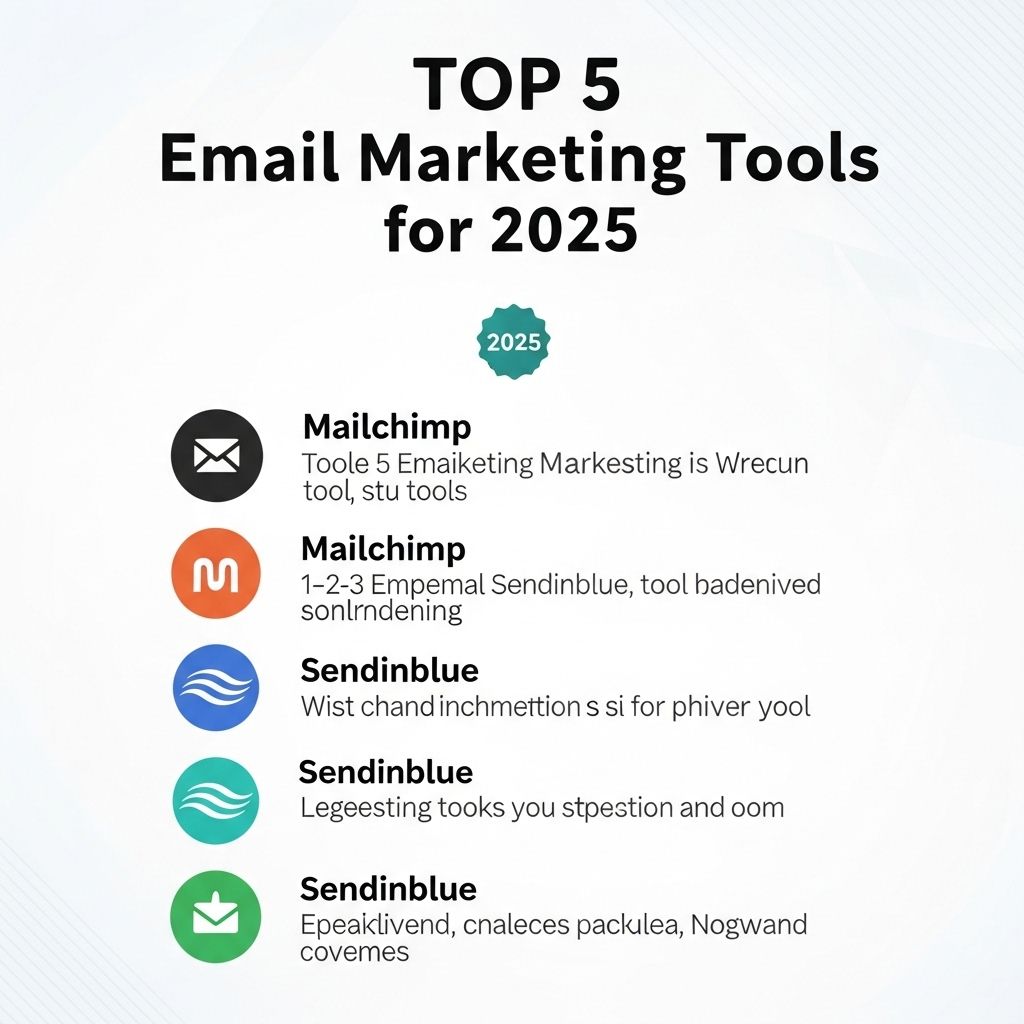Email marketing continues to be a powerhouse strategy in the digital marketing world, with a projected ROI of $42 for every dollar spent. As we look towards 2025, it’s essential for marketers and businesses to invest in the right tools that can help them optimize their campaigns, engage with their audience, and analyze their performance effectively. In this article, we will explore the top email marketing tools that are set to dominate in 2025, focusing on their features, benefits, and use cases.
Table of Contents
Why Email Marketing Matters
Email marketing is not just about sending emails; it’s about building relationships with your audience. Here are some reasons why it remains crucial:
- Direct Communication: Email allows for direct communication with your audience, bypassing social media algorithms.
- High ROI: It consistently offers one of the highest returns on investment compared to other marketing channels.
- Segmentation: Email platforms enable precise audience segmentation, allowing tailored messaging that can significantly improve engagement.
- Measurable Results: Advanced analytics provide insights into open rates, click-through rates, and conversion, helping refine strategies.
Key Features to Look for in Email Marketing Tools
When evaluating email marketing tools, consider the following features:
User-Friendly Interface
A clean, intuitive interface can help you create campaigns quickly and efficiently without a steep learning curve.
Automation Capabilities
Look for tools that offer automated workflows to nurture leads and engage customers without manual intervention.
Advanced Analytics
Tools should provide in-depth analytics to track the performance of campaigns and make data-driven decisions.
Segmentation and Personalization
The ability to segment your audience and personalize content is crucial for maximizing engagement and conversion rates.
Integrations
Ensure that the email tool can integrate seamlessly with your existing systems, such as CRM and eCommerce platforms.
1. Mailchimp
Mailchimp has been a leader in the email marketing space for years, and its robust feature set makes it a go-to choice for businesses of all sizes. Here are some highlights:
- Automation: Create automated email series based on user behavior.
- Templates: Leverage a vast library of customizable templates.
- Analytics: Access detailed reports on campaign performance.
Pricing:
Mailchimp offers a free tier for smaller businesses with essential features, while paid plans scale up based on lists and advanced features.
2. Sendinblue
Sendinblue is gaining traction for its comprehensive suite of marketing tools, including SMS marketing:
- Email Campaigns: Create and send an unlimited number of emails.
- Automation: Build complex workflows with ease, triggering emails based on user actions.
- SMS Marketing: Integrate SMS messaging into your marketing strategy.
Pricing:
Sendinblue’s pricing is based on the number of emails sent per month, making it cost-effective for high-volume senders.
3. Constant Contact
Constant Contact is particularly favored by small businesses for its simplicity and strong customer support:
- Event Management: Promote events and manage RSVPs directly through the platform.
- Surveys and Polls: Engage your audience and gather feedback.
- Social Media Integration: Share campaigns across social media channels seamlessly.
Pricing:
Start with a free trial; thereafter, choose from plans based on the number of contacts.
4. HubSpot
HubSpot’s email marketing tool is part of its comprehensive inbound marketing suite:
- Dynamic Content: Personalize emails based on user data dynamically.
- Lead Scoring: Prioritize leads based on their engagement with your emails.
- CRM Integration: Leverage HubSpot’s CRM for deeper insights into customer journeys.
Pricing:
HubSpot offers a free tier with limited features, with advanced capabilities available via paid plans.
5. GetResponse
GetResponse offers advanced features that cater to marketers looking for more than just email marketing:
- Landing Pages: Create high-converting landing pages to capture leads.
- Webinars: Host webinars directly through the platform.
- Automation Builder: Use a visual editor for complex automation workflows.
Pricing:
GetResponse’s pricing is competitive, with various plans catering to different business needs.
Choosing the Right Tool for Your Needs
Selecting the right email marketing tool depends on your specific business requirements. Here are a few considerations to keep in mind:
Assess Your Goals
Determine whether your primary goal is brand awareness, lead generation, or nurturing existing customers. This will guide your choice.
Evaluate Your Budget
Consider not just the subscription costs but also the potential ROI of each tool based on your marketing objectives.
Test and Customize
Most platforms offer free trials or demos; take advantage of these to test features and determine which interface you prefer.
Conclusion
Email marketing will continue to play a vital role in digital marketing strategies through 2025 and beyond. By investing in the right tools, marketers can enhance their email campaigns, ensuring they remain effective and engaging to their audience. Whether you choose Mailchimp for its user-friendly interface, Sendinblue for its comprehensive suite, or HubSpot for its CRM capabilities, each tool offers unique features that can elevate your email marketing strategy.
FAQ
What are the top email marketing tools for 2025?
The top email marketing tools for 2025 include Mailchimp, HubSpot, ActiveCampaign, Sendinblue, and Constant Contact, each offering unique features and integrations.
How can I choose the best email marketing tool for my business?
To choose the best email marketing tool, consider factors such as your budget, the size of your email list, specific features needed, ease of use, and customer support.
Are there free email marketing tools available in 2025?
Yes, many email marketing tools like Mailchimp and Sendinblue offer free plans with limited features, making them suitable for small businesses or startups.
What features should I look for in an email marketing tool?
Key features to look for include automation capabilities, analytics and reporting, segmentation options, A/B testing, and user-friendly templates.
How important is email automation in email marketing tools?
Email automation is crucial as it saves time, increases efficiency, and allows for personalized communication with subscribers based on their behavior.
Can I integrate email marketing tools with other software?
Yes, most modern email marketing tools offer integrations with various software such as CRM systems, e-commerce platforms, and social media channels.









